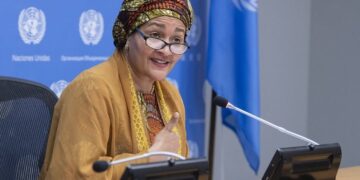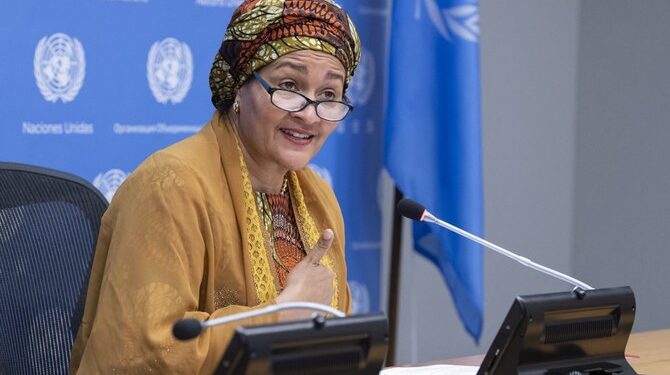By Ebi Kesiena
As nations worldwide kicked off the annual 16 Days of Activism Against Gender-Based Violence campaign on November 25, dedicated to eliminating violence against women and girls, the United Nations (UN) cautions that the battle against this scourge is far from won.
Speaking on the scourge, UN Deputy Secretary General Amina J. Mohammed expressed concern halfway through the 2030 Agenda, noting that there was a need for urgent action to achieve the goal of eliminating violence against women and girls set by the 2008 UNITE by 2030 campaign.
In a pre-International Day for the Elimination of Violence Against Women video message, Mohammed urged immediate measures for a better and safer future for women, girls, and everyone.
In the same vein, Sima Bahous, the executive director of UN Women, attributed the surge in violence against women to conflicts and cited a report by the UN Office of Drugs and Crime revealing that every hour, five women or girls fall victim to familial violence.
Bahous decried such violence as a stain on humanity and emphasized the imperative to halt it. She noted that the impact of gender-based violence extends beyond the affected individuals, affecting communities economically.
Furthermore, Bahous stressed the necessity for increased investment to end this practice, highlighting that some countries estimate the economic impact at 3.7% of GDP, while the investment is a meager 0.2% of overall aid in 2022.
The 16 Days of Activism Against Gender-Based Violence concludes on Human Rights Day, December 10. The UN’s call to action resonates globally, emphasizing the collective responsibility to address and eradicate violence against women and girls.




































